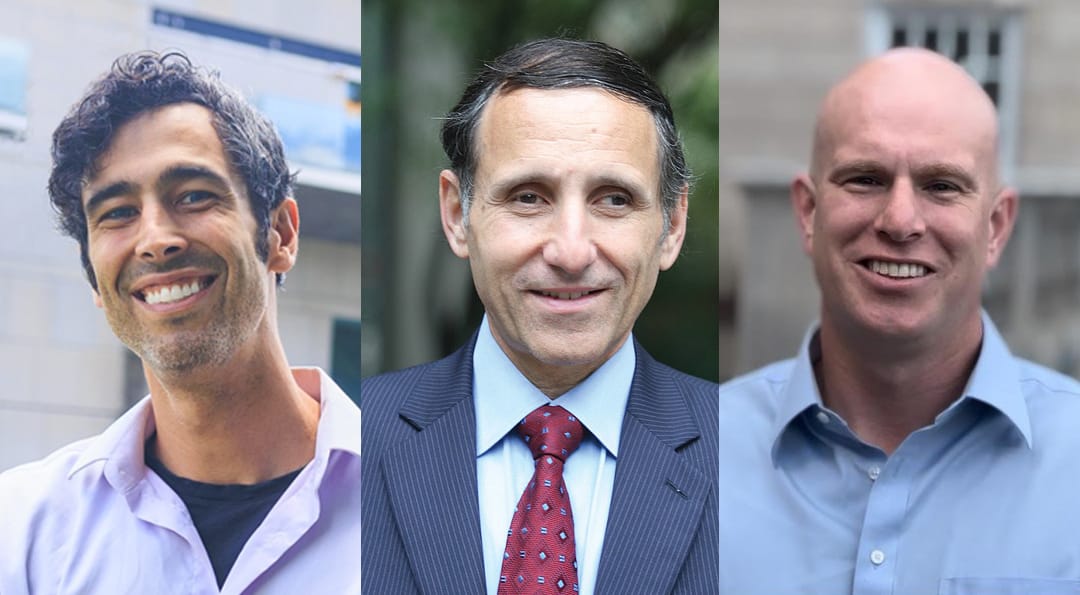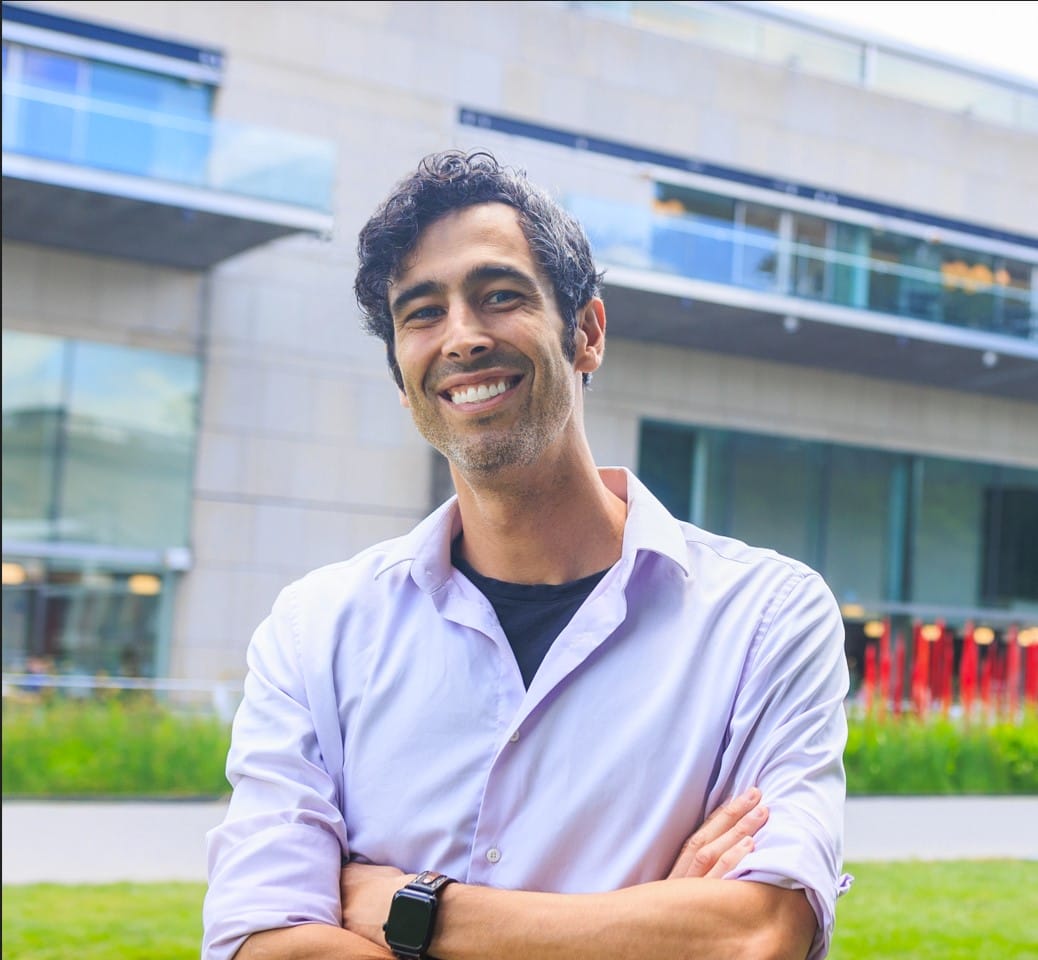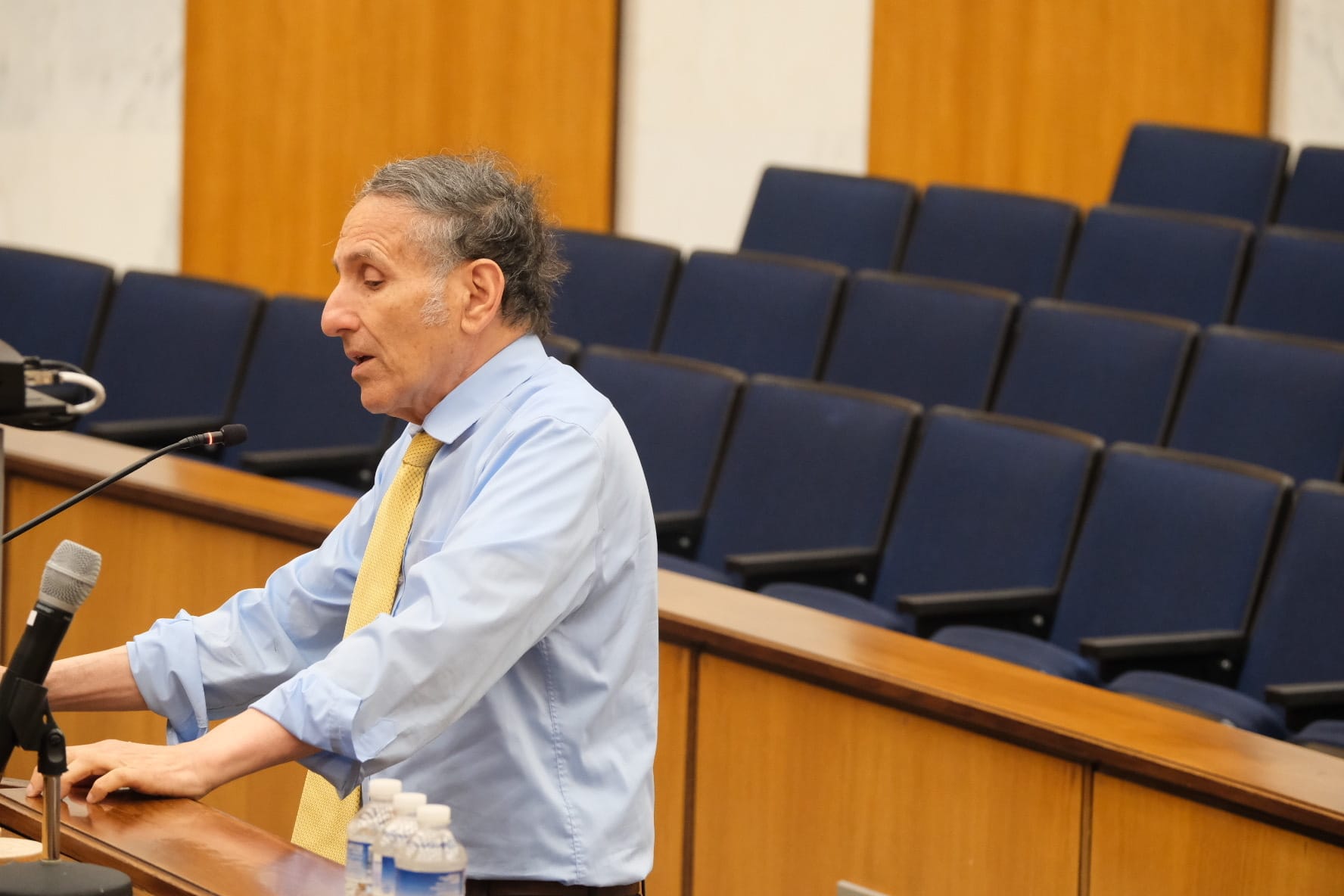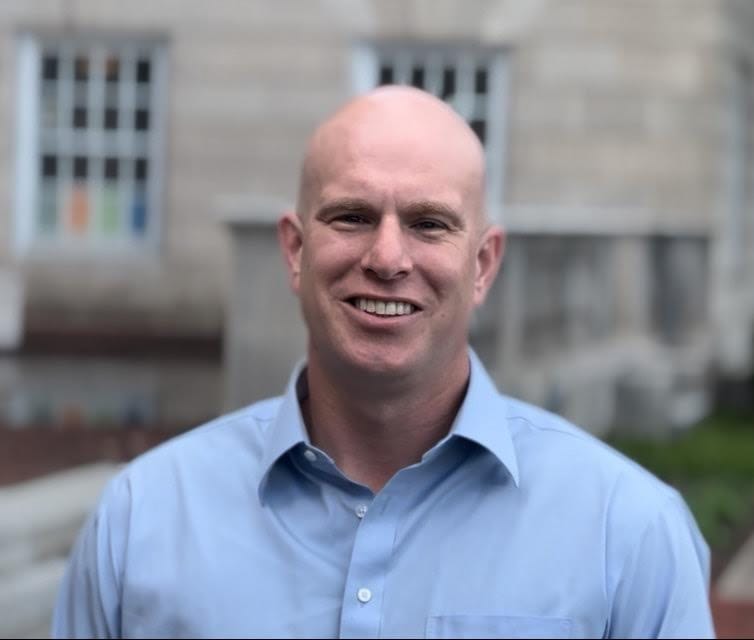'Gumby,' Goldman and Walker create an intriguing 1st District council contest

Andrew “Gumby” Breton used a mini focus group to decide whether he should put his nickname on the ballot or whether it would come across as too undignified for the Richmond City Council.
He chose to go for it, concluding there’d be no harm in using the name that’s stuck to him since college due to his tall, slim stature and, as he tells it, “possibly some of my dance moves.”
In an interview, Breton said the decision to use the nickname has worked out, making it easier for people to recognize him as he runs for the West End’s 1st District seat on the City Council.
“It lends more credibility to the fact that I am bringing a positive message, a positive collaborative attitude,” said Breton, who said his vision for Richmond is “safe, green walkable communities with great schools and greater affordability.”
Breton, a 42-year-old data architect and civic activist who previously chaired the Richmond City Democratic Committee, is in the three-way race for the 1st District seat being vacated by incumbent Councilor Andreas Addison. After two terms in the seat, Addison is now running for mayor.
But Breton is running against another Richmonder who’s easily recognizable: Paul Goldman.
A lawyer and longtime political strategist who once served as an aide to former Gov. Doug Wilder, Goldman, 78, has been a thorn in the side of Mayor Levar Stoney’s administration for years.
Goldman has made several recent appearances at City Council meetings to lambaste city leaders for sending out higher and higher property tax bills while doing little to keep government spending in check.
“The machine here is only interested in themselves,” Goldman said in an interview. “We need a city that's for everybody. You're not going to get it by just going along to get along. You're going to have to challenge the status quo.”
Zac Walker, a 39-year-old account manager at Dominion Energy, is running for the seat as the more apolitical option, saying he avoids both Democratic and Republican labels and just wants the city to focus on municipal basics.
“I’m nonpartisan. I’m not involved in things of yesteryear,” Walker said in an interview. “I’m here for the present and future of Richmond.”

Breton
Breton grew up in the D.C. area and went to the University of Virginia. He began his professional career working in finance in New York City. It was there that he met his wife, a Richmond native whom he followed when she returned to her hometown.
He quit the finance world after being disillusioned by the 2008 mortgage crisis and the way banks got bailouts while homeowners got foreclosure notices. He then went to Duke University for a graduate degree in economics.
“My plan was to become a progressive economist and change the conversation nationally for more working class and bottom up, level-playing-field economics,” he said.
The economist part didn’t pan out, but Breton said he’s funneled those impulses into community activism everywhere he’s lived with an emphasis on environmental protection, transit investments, school funding and good governance.
Breton said he’ll push for the creation of a new transportation department in City Hall with a renewed focus on safe streets and walkability, as well as continue to explore the land value tax idea Addison has proposed.
Breton has said he supports Stoney’s tax relief plan for a one-time rebate and targeted efforts to lower housing costs for people who most need help. But he said he’s open to multiple approaches and hopes incoming City Hall leaders will agree to invest tax dollars in ways that will improve services and potentially reduce costs in the long run.
In addition to his role with the local Democratic Party, he’s been a PTA board member at Mary Munford Elementary School.
Before City Hall can fully prioritize the issues he cares about, Breton said, there has to be improvement in the basics.
“City management, city services are holding us back,” Breton said, adding that he’s “optimistic” a new mayor, a new group of council members and a new chief administrative officer can get to work on figuring out a collaborative approach to fixing finance and oversight issues.
In the past, he said, Richmonders would “throw up their hands” and say City Hall’s performance is lackluster because that’s just the way it’s always been.
“I think that we don't have that excuse anymore,” he said. “A lot of new people live here who have seen other ways of operating.”

Goldman
Goldman doesn’t hold back when talking about the problems he sees at City Hall, which he described as a “cesspool of corruption” and a “patronage operation.”
After a long career in and around politics, Goldman said he felt he had enough left in the tank to run for council for just one term and say the things he feels few are bold enough to say.
“Somebody has to be able to say, ‘Stop. Enough's enough,’” he said.
In addition to his time with Wilder, Goldman previously served as chairman of the Democratic Party of Virginia and opened a law firm in 2012 with Joe Morrissey, the former Richmond prosecutor and General Assembly member whose personal controversies ultimately cost him his law license. Goldman was also involved in the successful 2003 referendum effort to change Richmond’s system of government to have a strong mayor elected by a popular vote.
In his more recent Richmond activism, Goldman fought against efforts to bring a casino to town (an effort that drew antisemitic remarks from a prominent casino backer), sued to block the Diamond District development deal and filed a Freedom of Information Act challenge against City Hall after the city wouldn’t accommodate his requests for meals tax records.
His knack for filing lawsuits against the city has often put him at odds with Chief Administrative Officer Lincoln Saunders, who said this year that Goldman’s “frivolous lawsuit” over the Diamond District had only bogged the project down and potentially raised costs for the city by millions of dollars. Goldman disputes that characterization, saying he was insisting that voters should get to weigh in on public financing for a new minor-league baseball stadium.
While other council candidates are now talking about the need to bring in a new chief administrative officer when a new mayor takes office, Goldman stresses that he was one of the few who said Saunders — who served as Stoney’s chief of staff before becoming the city’s top government administrator — never should have been appointed to begin with.
“I'm sure he's a nice guy, okay. I don't know him that well,” Goldman said of Saunders. “But I can tell you, the public is outraged that Stoney picked his buddy.”
Goldman has said he’ll work to create an “office of neighborhood advocacy” at City Hall to tilt the balance of power away from developers and toward residents and has promised to continue pressing his ideas for how the city could unlock more money to modernize public school buildings.

Walker
Walker, a past president of the Monument Avenue Park Civic Association, is running as the low-drama candidate without a partisan affiliation and without a long history of involvement in the city’s political battles.
A former college football player at UVA Wise, Walker transferred to VCU and has lived in Richmond for about 20 years.
He said it was his neighborhood-level activism dealing with things like special use permits and traffic studies that inspired him to run for office and try to get the city to do a better job on “the simple stuff.”
“I do think it helps to be focused on what the job actually is,” he said. “Because it is potholes, trash cans and traffic controls and budgets and schools.”
Slowing down traffic in the district, Walker said, is a top priority.
“Our neighborhood has had a massive baby boom,” he said. “And now these kids are older and running in the street doing stuff that kids are supposed to do. And we’re having to be very interactive because of the traffic situation.”
Walker said he’d be in favor of reducing property taxes if it can be done without jeopardizing core funding or impacting school budgets. Even though Richmond is seeing population growth, he said, the city could suffer if too many of those newcomers decide they could financially benefit from crossing a “mythical line” and living in Henrico County instead.
As a former employee for the National Park Service, Walker said he’d like to see more upgrades to local parks and efforts to make downtown more vibrant when office workers aren’t there. Within City Hall, he said he’d focus on software improvements, better training and retention of good employees.
He gave City Hall’s performance a “C-minus,” saying there are still restaurants in the district struggling with meals tax problems and the tax bill for his wife’s car somehow got lost in the shuffle.
“Everyone has a story like that,” he said. “And we have to get to where stuff just works.”






